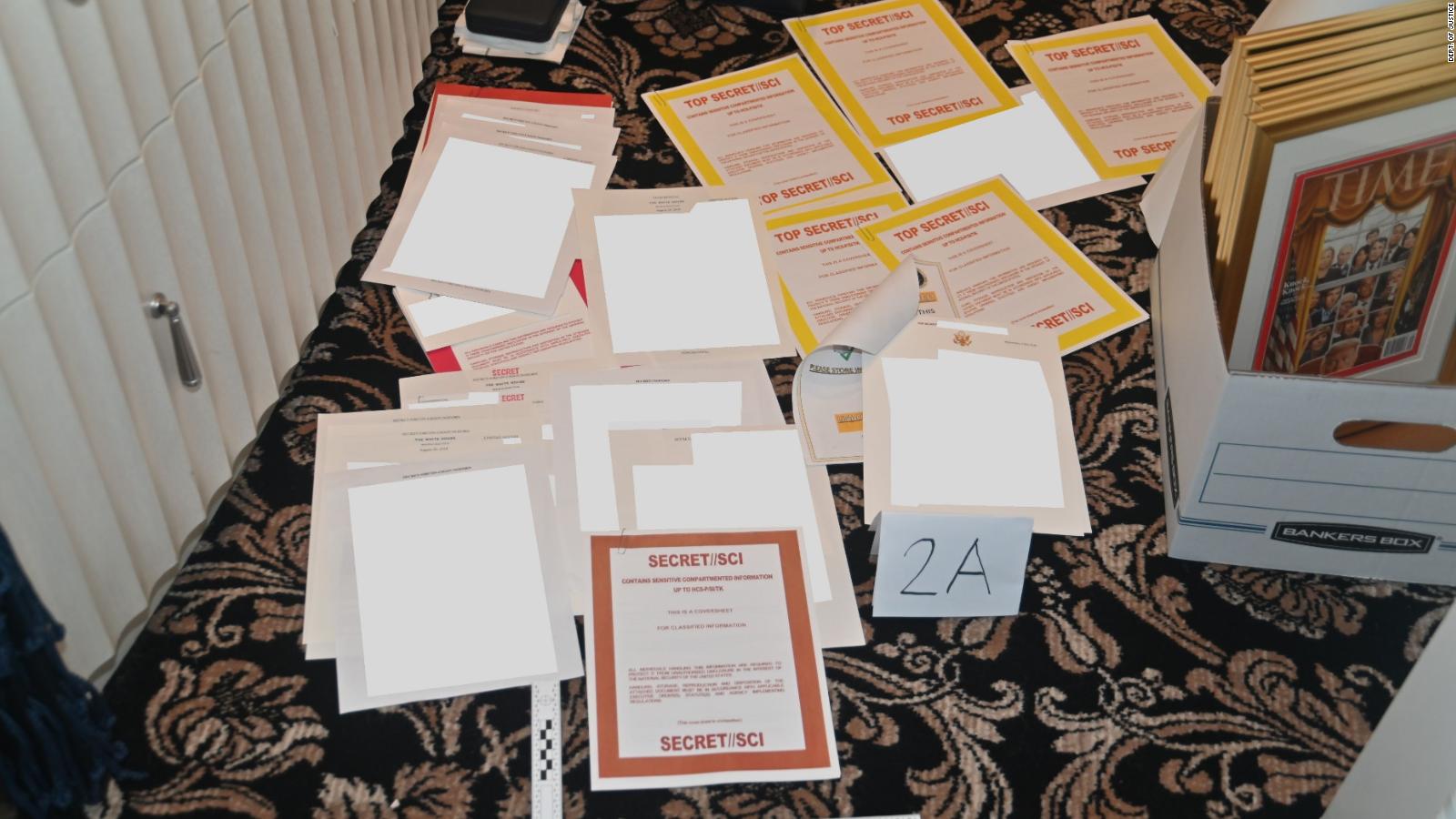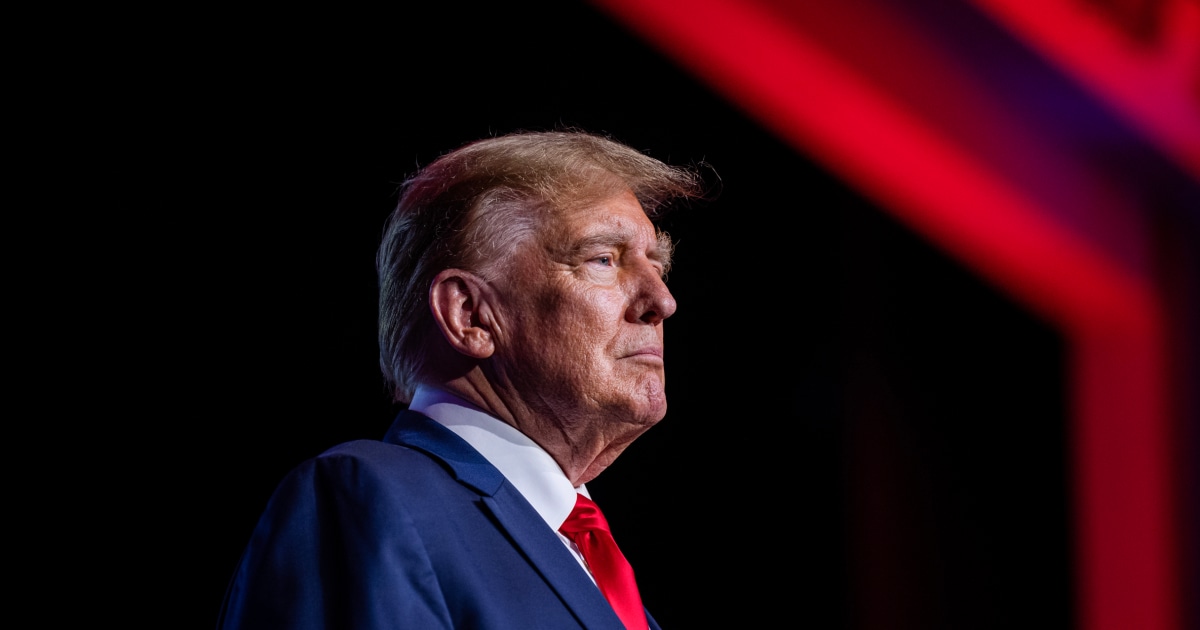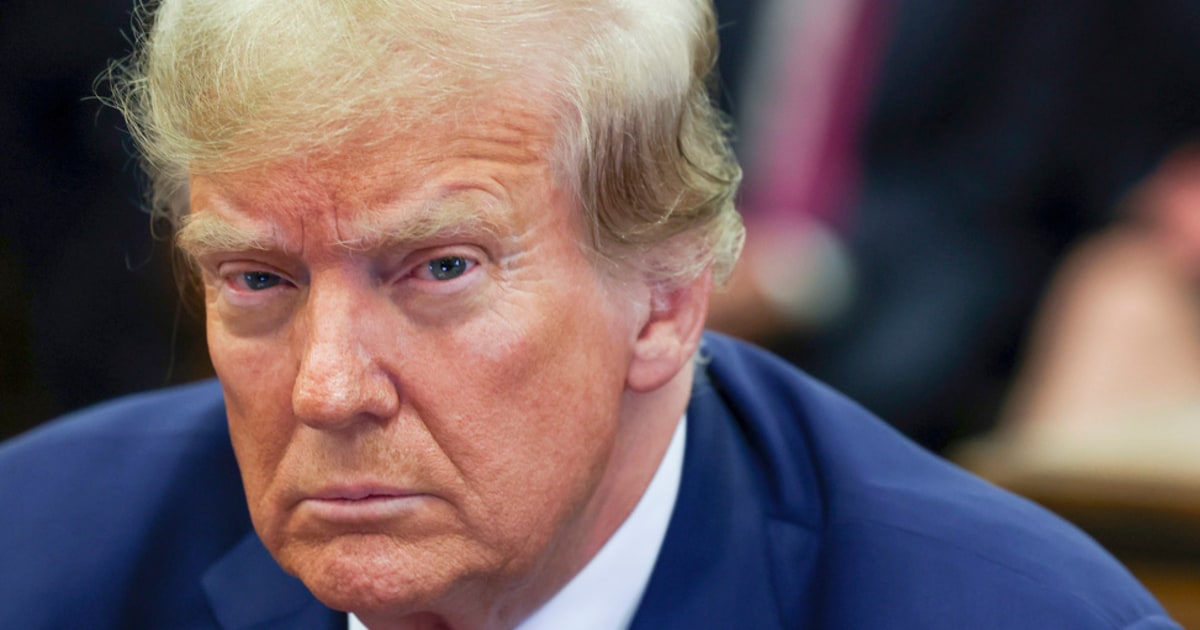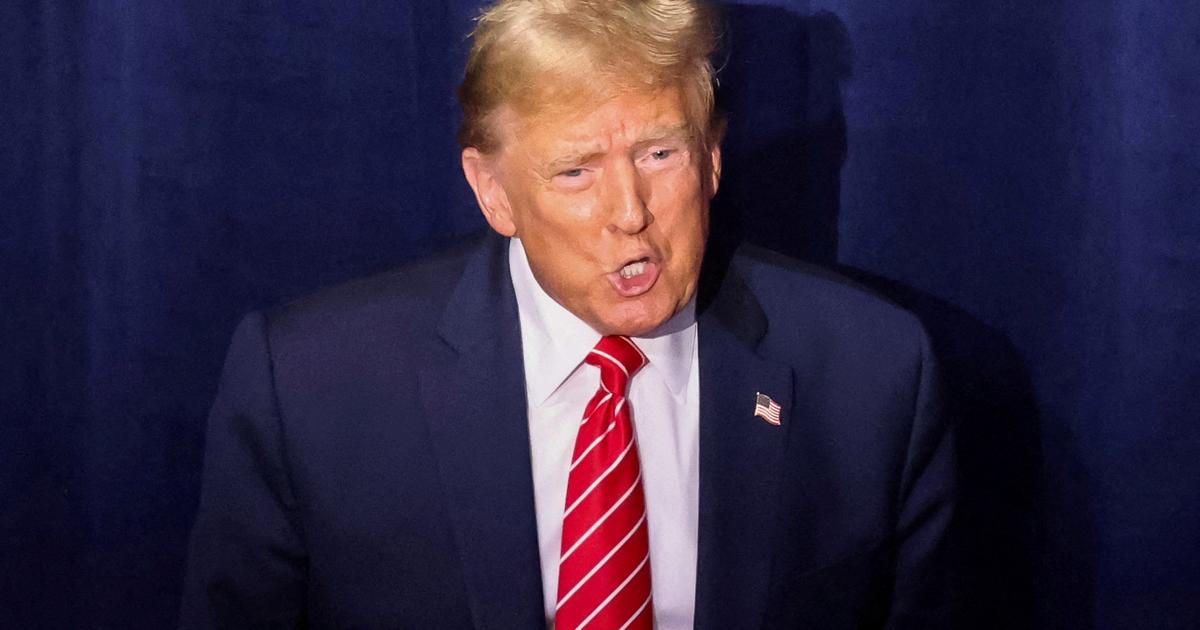They publish the petition to search the residence of Donald Trump 0:59
(CNN) --
US government documents were "likely hidden and removed" from a storage room at Mar-a-Lago as part of an effort to "obstruct" the FBI's investigation into the possible mishandling of classified materials by former President Donald Trump, the Justice Department said in a shocking court filing Tuesday night.
More than 320 classified documents have now been recovered from Mar-a-Lago, the Justice Department said, including more than 100 in the FBI raid earlier this month.
'Limited Series of Materials' Possibly Protected by Attorney-Client Privilege Found at Mar-a-Lago, DOJ Says
Tuesday's filing represents the Justice Department's strongest argument to date that Trump concealed classified material he kept at Mar-a-Lago in an attempt to obstruct the FBI's investigation into possible mishandling of classified material.
The Justice Department released the startling new details as part of its move to oppose Trump's attempt to intervene in the federal investigation that led to the raid of his Florida resort and his desire to see a "special teacher" appointed for the case.
Trump has pushed an "incomplete and inaccurate narrative" in his recent court filings about the search for Mar-a-Lago, the Justice Department said.
"The government provides below a detailed listing of the relevant facts, many of which are provided to correct the incomplete and inaccurate narrative set forth in the plaintiff's submissions," prosecutors wrote.
advertising
Presents a strong rebuttal to criticism of the FBI's unprecedented search of a former president's residence, and clearly exposes how Trump failed to return dozens of classified documents even after his attorney testified that he had provided all of the classified material in his possession. .
An image on the final page of the filing showing classified documents strewn across the floor of Trump's office, littered with markings classified as "HCS," the acronym for confidential human sources, underscored just how sensitive the material Trump had taken.
At stake is Trump's compliance with a grand jury subpoena, issued in May, demanding that he turn over classified documents from Mar-a-Lago.
Prosecutors said Tuesday that some documents were likely removed from a storage room before Trump's attorneys searched the area as they tried to comply with the subpoena.
The timeline is essential, because Trump's lawyers later told investigators that they searched the storage area and all the classified documents were accounted for.
"The government also developed evidence that government records were likely concealed and removed from the storage room and that steps were likely taken to obstruct the government's investigation," prosecutors wrote.
"This included evidence indicating that boxes previously in the storage room were not returned prior to counsel's review."
In the filing opposing Trump's request, the Justice Department argues that the former president lacks authority over presidential records "because those records do not belong to him," since presidential records are considered government property.
The Presidential Records Act makes it clear that “[the United States] has “whole ownership, possession, and control of them,” the Justice Department filing states.
Trump has argued that his constitutional rights have been violated and that some of the documents seized earlier this month contain material covered by privilege, particularly executive privilege.
Ordering the Justice Department to make the filing was Judge Aileen Cannon, who has already indicated she is inclined to grant Trump's request for a third party to oversee documents the FBI seized at Mar-a-Lago.
The role of a special master is to filter out any material seized in a raid that should not be in the hands of investigators due to privilege.
Special masters have been used before in high-profile cases, but generally in cases where the FBI has searched an attorney's office or home and there is a need to filter materials related to attorney-client privilege.
Trump's request has focused on the need to protect documents related to executive privilege from his conduct as president.
DOJ Releases Redacted Affidavit on Search of Trump's Mar-a-Lago Residence
Signs from Cannon, a Trump appointee, that she is leaning toward appointing a special teacher for the Mar-a-Lago raid have drawn the attention of legal observers.
For one thing, Trump filed his appointment request two weeks after his Florida home was raided, risking the possibility that the Justice Department is already done with most of its review of him.
Second, both Trump and the judge have pointed to the civil rules regarding special teacher appointments, when the search warrant arises in a criminal context.
Since the Aug. 8 search, several previously secret court documents filed by the Justice Department to obtain the warrant have been partially made public in part due to a transparency offer filed in court by various media organizations, including CNN.
Those redacted documents have revealed that the search was related to a Justice Department investigation into alleged violations of the Espionage Act, criminal mishandling of government documents, and obstruction of justice.
According to an FBI affidavit released last week, an FBI review of 15 boxes recovered by the National Archives at Mar-a-Lago in January found 184 documents with classification marks, some of them identified as particularly sensitive government documents. .
Trump, searching for the special master, has emphasized in court documents the lack of criminal enforcement in the Presidential Records Act, a Watergate-era law that establishes the process for preserving presidential records.
He did not mention the three criminal statutes that the Justice Department cited in its warrant documents.
Trump's lawyers have also emphasized his allegedly unlimited ability when he was president to declassify documents, even though the statutes in question do not require the materials to be classified.
Trump's lawyer limited what the Justice Department could see during the June visit
A senior Justice Department official maintains that federal investigators were limited in what they could see when they visited the complex in June, contrary to the Trump team's narrative of full cooperation.
Trump's attorney requested that the FBI go to the resort to collect the documents after Trump's team received a grand jury subpoena in May seeking any material marked classified, according to the Justice Department.
The Justice Department account also undermined claims by Trump and his allies that the former president had declassified the materials in question.
"In filing the documents, neither counsel nor the custodian asserted that the former president had declassified the documents or asserted any claim of executive privilege," the filing says.
"Instead, the attorney handled them in a way that suggested the attorney believed the documents were classified: The production included a single Redweld envelope, wrapped in duct tape, containing the document."
In the Justice Department account, Trump's attorney said all remaining documents from the Trump White House were kept in the Mar-a-Lago repository.
"Counsel further stated that there were no other records stored in any private office space or other location on the premises and that all available boxes were searched," the filing says.
Prosecutors confirmed Trump's claim that visiting Justice Department and FBI officials were allowed to go to the storage area.
"However, critically, the former president's attorney explicitly prohibited government personnel from opening or looking inside any of the boxes that remained in the storage room, giving the government no opportunity to confirm that no documents with classification marks remained. "said the Justice Department.
Justice Department Reveals Proceedings Related to Mar-a-Lago Raid
The Justice Department confirmed that grand jury subpoenas had been issued in its investigation, and in doing so, prosecutors indicated that proceedings related to the search were also taking place in secret at the federal courthouse in Washington.
Referring to a subpoena issued in May for "[any] and all documents or writings in the custody or control of Donald J. Trump and/or the Office of Donald J. Trump bearing classification marks [list of classification marks] The Justice Department said in a footnote that it had been authorized by Chief Judge Beryl Howell in Washington District Court to unseal those grand jury subpoenas.
The reference to her suggests that, in addition to magistrate judge Bruce Reinhart and Cannon in Florida, a third judge is now involved in the Justice Department investigation.
"The former president disclosed this subpoena and a subpoena for video footage on the premises in his filings with this Court," the footnote reads.
"Thereafter, on August 29, 2022, Presiding Judge Howell in the District of Columbia authorized the government to release to this Court these grand jury subpoenas and the material discussed herein."
Sea-to-Lake







